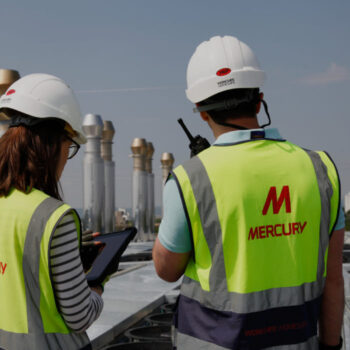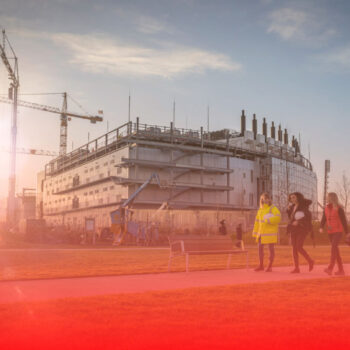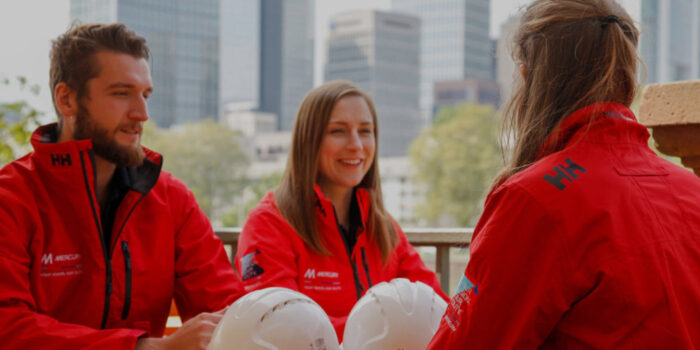Nachrichten und Einblicke
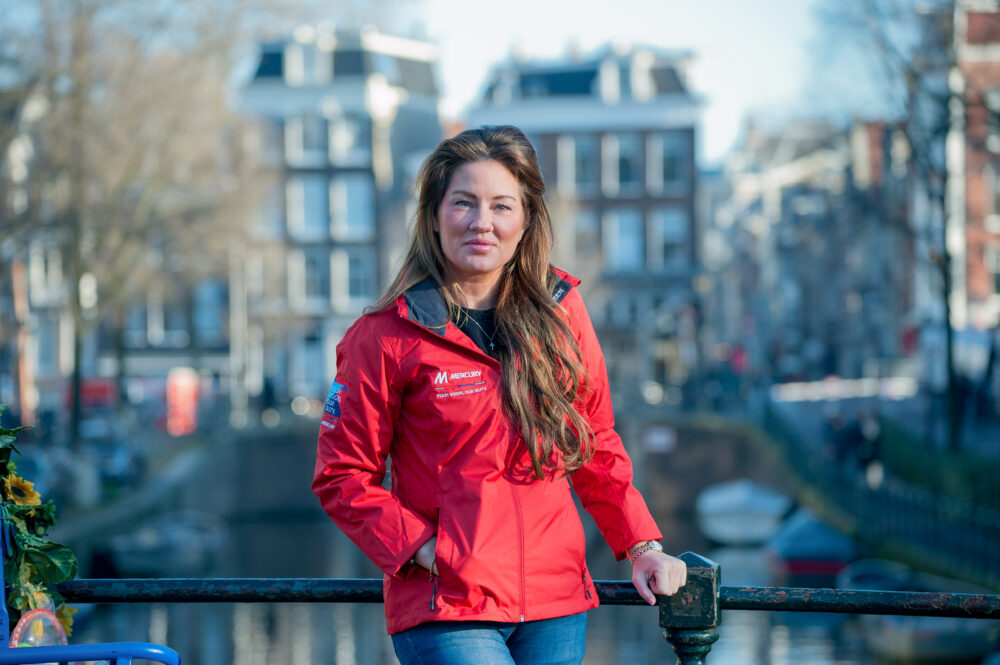
Vicki Simmonds on recognising burnout and breaking down the stigma around mental health
Vicki Simmonds has spent most of her professional career as a health and safety specialist. She has garnered vast experience working in high-pressure environments, where the safety of thousands of people depends upon her leadership and expertise. Her knowledge in this field has recently seen her take on a new role with Mercury, as a Senior Business Unit EHS Manager.
“My role changes from day to day,” Vicki explains. “I’m the thread that pulls the EHS team together for our Critical Data Infrastructure Division. I liaise between business unit managers and teams, implementing best practice strategies for data centre projects across Europe. I love that my role at Mercury is fast-paced and how quickly it evolves. In health and safety there are always strategies to be developed and perfected, and you are always able to influence and change things for the better.”
Vicki first developed an interest in safety while working for another contractor on the Terminal 5 project at Heathrow Airport in London. “I loved the pace and energy of the construction environment,” she recalls, “But I found myself naturally drawn towards the health & safety aspect. I used to shadow the Health & Safety Manager on his visits, asking him lots and lots of questions. I was hooked! Since then, health & safety has been a genuine passion of mine.”
She relishes the dynamic nature of her role with Mercury. “I travel a lot. Our projects are spread out across Europe. It’s nice that no two days look the same. I love getting out onto the project, working closely with teams to implement our Work Safe, Home Safe culture. In my opinion, you can’t replace qualifications with experience and being present. There is of course an academic aspect of EHS, but you need to be on the ground on projects, seeing things with your own eyes. You learn by observing and experiencing things in a live environment.
The challenges of life as a construction professional
As well documented, those working in the construction sector often face unique challenges. Forging a career in this industry often means being abroad for long periods of time, away from family, friends, and a regular routine. Settling into a new country and project can be particularly challenging, especially when trying to get to grips with a new language and culture, while at the same time, performing to the best of your ability in a high-pressure environment.
Vicki understands this narrative very well. “It really depends on the individual. You can thrive or feel really challenged, and this raises the question – who is there to give you the support when you need it?”
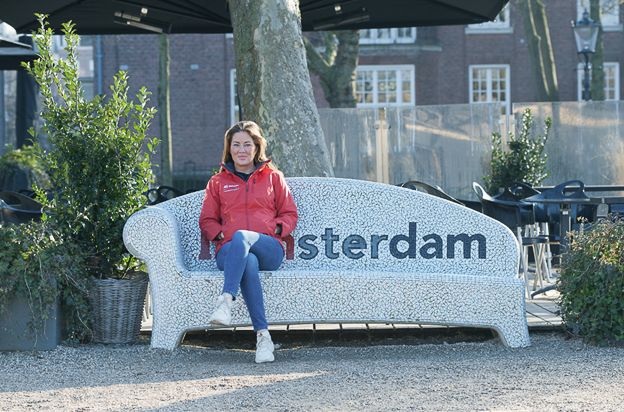
The Covid-19 pandemic had a profound effect on how people live and work, and this is also something that Vicki has experienced first-hand. “Many struggled with loneliness and confinement during lockdown,” she reflects. “Others found the prospect of returning to a normal working week to be daunting – particularly when they were surrounded by family and friends for so long.” It comes as no surprise to Vicki that health and wellbeing have become a more crucial pillar of health and safety in the workplace in a post-pandemic world.
New career direction & recognising the symptoms of burnout
It was during lockdown that Vicki found herself going through her own deeply personal experience – one that proved to be life changing – taking her down a path she never could have imagined.
At the time Vicki had been living in the Netherlands and decided she wanted to explore her career opportunities in a new industry. She stepped outside of the construction sector for the first time as a professional, accepting a senior position with a global supply-chain company. “My role was very far reaching. I sat on the European Board, which brought immense responsibility,” she reflects. “When the pandemic happened, I found myself locked down overseas away from my family and long-term friends. I was trying to operate to my very best from the kitchen table, making high impact business decisions under extreme pressure. I was missing that real connection of meeting people. I was also trying to bring my skills to a new environment, without actually having experienced it firsthand.”
Vicki started to develop a range of burnout symptoms, but saw these as isolated, rather than seeing them as elements of a much bigger issue. As a result, she battled on for a nearly a year. What surprised her was her own failure to recognise these symptoms, despite being an expert in maintaining the health and safety of others.
“I’ve worked in this field for 15 years and developed strong skills in helping people to recognise personal issues and deal with them. When it came to me, I just didn’t see it. That’s because we assume burnout is linked with depression, inability to get out of bed in the morning, low energy, mood swings. My symptoms were much more severe.”
“I started suffering from hallucinations and PTSD. I experienced severe panic attacks, even in my sleep. My ability to sleep was profoundly affected, through a high-pitched ringing in my ears, sleepwalking and disturbing dreams. I lost my passion and creativity and found it difficult to make even the smallest decisions.”
When Vicki eventually reached out, her doctor diagnosed the symptoms as a very severe nervous breakdown. She had burnt herself out to the extreme. “There was an element of embarrassment,” she admits. “Not realising that it was happening to me. This was stupid, because even a doctor catches the flu! I had to take six months off. That was difficult to come to terms with.”
Advocating for change and helping others
When asked about the key triggers to stress in the workplace Vicki is quite clear that “Stress to one person is normal to another.” She adds that, “It’s something that we really have to be conscious of. We cannot judge or question people if they feel a certain way. Everyone has different triggers and stresses in life. What I find easy, someone else might find really difficult. It could push them over the edge of an anxiety attack.”
This has been the real driving force behind Vicki’s passionate advocacy for mental health & wellbeing and the reason for her decision to share her own deeply personal story.
“That’s why I like to be authentic about my situation. I feel I owe that as a duty of care to others. For people to know that everyone is individual. That’s why I like to speak up. I know I can leverage my situation to improve the lives of others.”
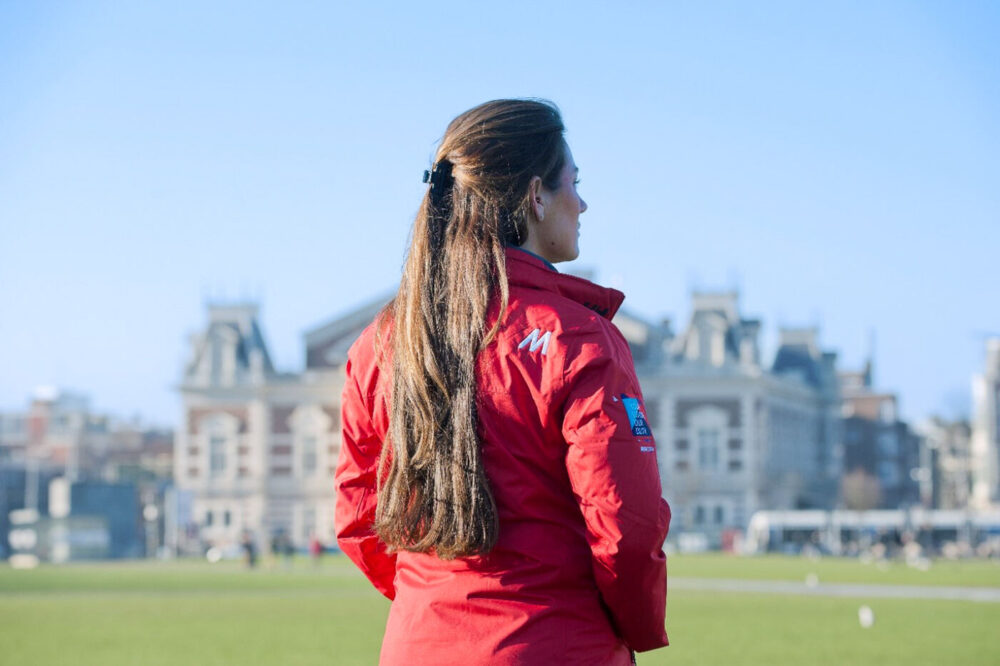
One of the key supports for Vicki was therapy. “At first I thought it’s not for me, I have nothing to talk about. I swear by it now. My whole life has changed because of it. I would recommend it to everyone. In fact, I believe that at some stage of their life, everyone should have access to therapy.”
Vicki’s personal experience has brought her life very much into perspective. “I’m consumed with having a positive impact on the world. I’m more driven now to prevent people from going through what I went through.”
Being connected with nature and connected with sports, has had the most profound effect on Vicki’s life and played a hugely important part in her recovery. “Sports attracts so many positive people who can help you grow. It has really helped to bring clarity, energy and focus to my life. An important part of my recovery has been about being clearer about what you want. Training yourself to say no – in business and in my personal life. It’s about knowing you are doing the best you can with the tools you have. In a business environment it’s about learning to take mistakes in our stride. No one is ever 100% flawless.”
Building Mercury’s health & wellbeing programme
The construction industry has always been at the forefront of addressing health & wellbeing in the workplace. Working abroad, long hours and physically demanding work in high-risk environments have ensured it has remained in sharp focus. Where other industries are in their infancy regarding health & wellbeing strategies, construction has been leading the way.
Building a comprehensive health & wellbeing programme has been a key priority for Mercury for the last 15 years. It operates an ‘open door’ policy, encouraging its employees to reach out to anyone in the business. There are many different ways to get vital supports.
Mental Health First Aiders are appointed to every team and project, providing confidential support to anyone who needs it. These First Aiders undergo a professional training course to enable them to recognise signs and symptoms. Specialist Services can be accessed through the Employee Assistance Programme. Mercury also has an in-house Health & Wellbeing Manager who works across all divisions in the Group.
“We encourage people to speak up when they are not feeling so good,” says Vicki. “Whether they need a break, to take time away, or if they need to speak to a professional. And it’s not just the Mercury staff, we offer this to all our supply-chain partners too.”
“It’s not something we pay lip service to,” Vicki is quick to point out. “We genuinely believe in it. We encourage the right to ‘speak up’. If someone feels, there’s something not quite right they have the power to ‘pause’ it and question it without judgment. We’ve brought people along the journey with us. Some are more receptive. But there are still people out on site who don’t want to talk. They are the ones we need to tap into, to make sure they are okay.”
That’s why Mercury’s initiatives at site level are so important. Monthly health and wellbeing campaigns are organised on a range of different health & wellbeing topics. “This gets people used to talking more openly about it.” Vicki adds. “The hope is it might trigger them to recognise there’s something wrong. We also bring in external guest speakers.”
Mercury’s EAP service is promoted throughout the year to regularly remind employees that reaching out for help is not only ok, but a sign of bravery. Mercury have also partnered with ‘Tackle Your Feelings’, a campaign run by Rugby Players Ireland which encourages people to be more proactive about looking after their mental wellbeing on a daily basis.
Group-wide physical fitness challenges take place every few weeks through the PepTalk app. This app allows all employees to take part in initiatives aimed at promoting a supportive work environment and improving overall wellbeing. The app’s Team Check In function allows all Mercury people to check in and rate how they are feeling from a wellbeing perspective each month- this helps the wellbeing team to gather data about the key areas of concern across the company and plan initiatives to help in these specific areas.
When asked if enough is being done in the industry to support health and wellbeing Vicki is optimistic. “The construction environment is changing for the good. There used to be a stigma around mental health, particularly with men. It’s a very male dominated industry. Men can find it difficult to speak about their feelings. They don’t want to be seen as anything other than strong, and certainly not vulnerable. They often choose to suffer in silence. This is changing and I’m glad Mercury is leading the way here.”
When asked what advice she would give someone who feels they are struggling Vicki is very clear, “Don’t be afraid to admit how you feel. What’s the worst that’s going to happen? Be open and honest about what exactly you’re feeling and reach out. Find the right platform, the right person, the right context, the right conversation. Speaking up often inspires others to also come forward with their own struggles.”
So what does the future hold for Vicki? “It’s my passion to get my story out there to help other people. To look after people and know I can make a difference. Working in Health & Safety and Wellbeing, I’m glad that my role allows me to support others on a daily basis. I can only see wellbeing becoming more enhanced in Mercury and I’m privileged to be a part of it.”
WELLBEING
At Mercury, we drive a culture of wellbeing that enables our people to succeed and thrive.
The physical and mental wellbeing of our employees is of supreme importance. By cultivating a positive and engaging working environment that supports and nurtures, we believe that our staff are better placed to deliver top-class results.
You can read more about our employee wellbeing strategy by clicking here.
Follow us on LinkedIn, Facebook, and Instagram.
